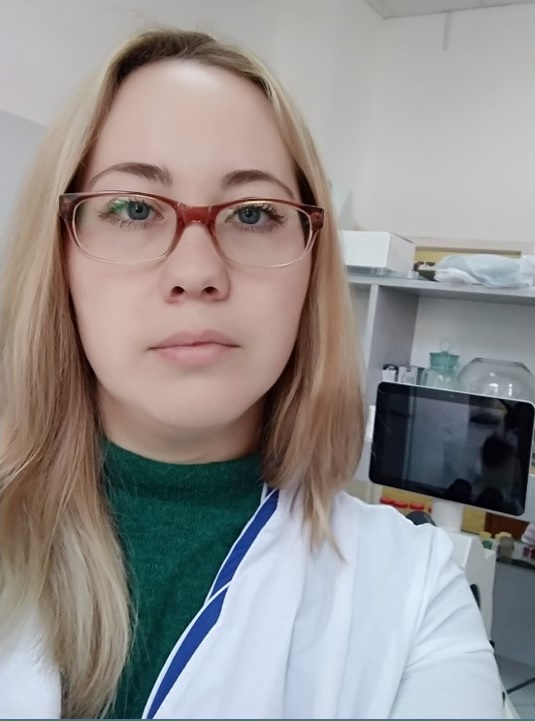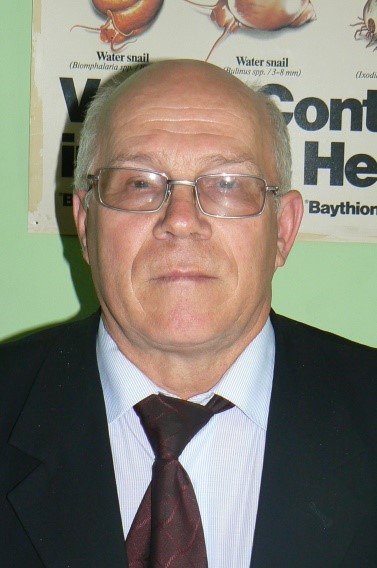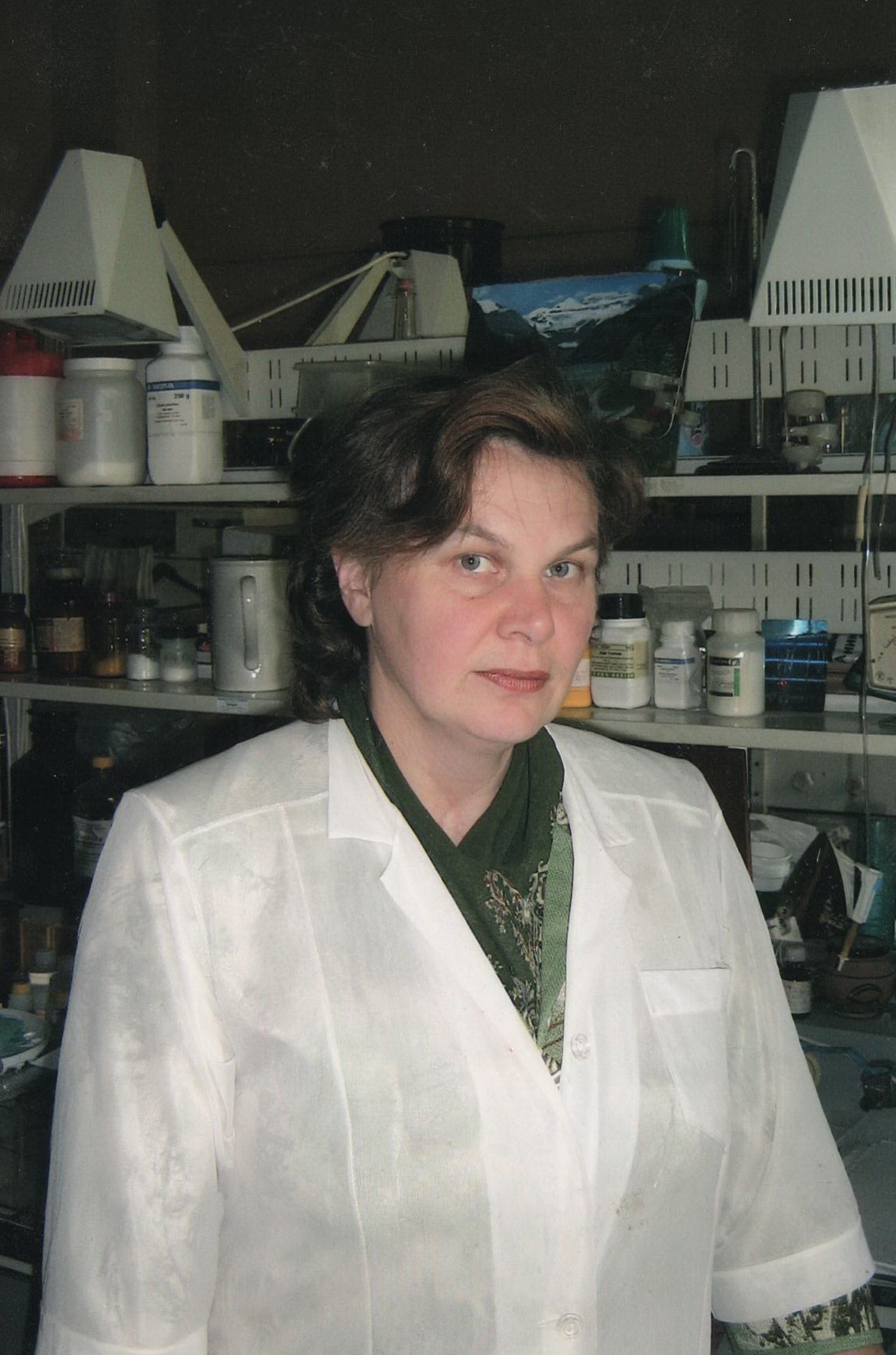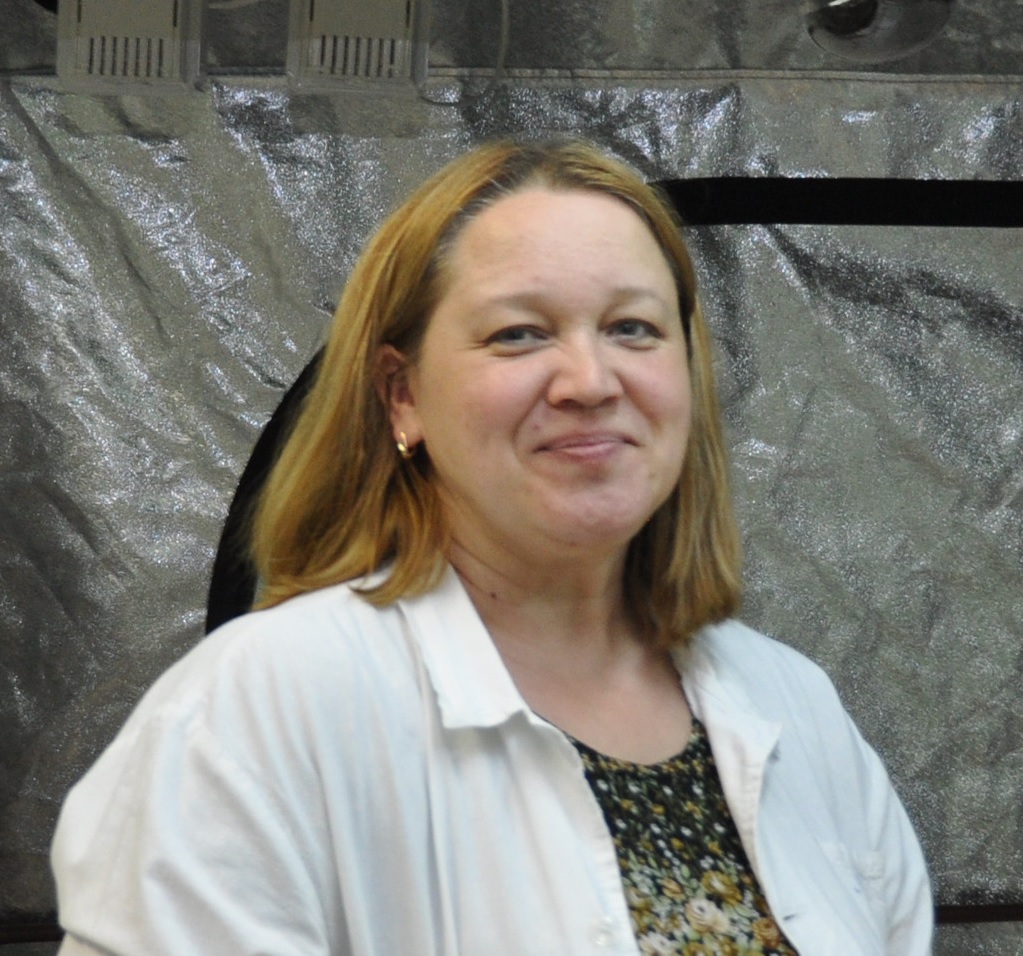The structure of the institute comprises 8 laboratories, the Research and Innovation Department, and the Podolsk Experimental and Production Base with a vivarium and a workshop for the development of pilot batches of new antiparasitic medications:
Laboratory of Epizootiology and Sanitary Parasitology
Head of the Laboratory, Candidate of Biological Sciences
Evgeniya Vladimirovna Puzanova
The Laboratory studies the epizootiology of parasitoses, the patterns of formation and functioning of parasitic systems and their individual components in natural agricultural biocenoses, the influence of natural and anthropogenic factors on the dynamics of the infestation of animals by the most economically and socially significant parasitoses.
The laboratory monitors the epizootic situation of the main parasitic diseases of pigs and caged fur animals, tests antiparasitic medications and develops methods for their use in pig breeding and large-scale fur farming, carries out research and development of sanitary and parasitological methods for disinfecting livestock wastewater and manure in industrial farms, tests comprehensive measures aimed at protection from parasitoses with respect to farms with different management technologies and different geographic areas, as well as develops standards and regulations for the expenditures of time and material resources, prices for diagnostic studies and preventive antiparasitic measures
Laboratory of Biology and Biological Basis of Preventive Measures
Head of the Laboratory, Candidate of Biological Sciences
Olga Aleksandrovna Panova

The Laboratory studies the biology of helminths, the ecology of intermediate hosts, parasite cenosis relationships, and explores biological methods for the control and prevention of parasitic diseaseses.
Laboratory of Experimental Therapy
Head of the Laboratory, Doctor of Veterinary Sciences, Professor,
Winner of the Russian Federation Government Prize
Arkhipov Ivan Alekseevich

The Laboratory searches for the most effective chemotherapeutic drugs and dosage forms to fight parasitic diseases in mammals, birds, and fish; studies the pharmacokinetics and pharmacotoxicological properties of antiparasitic drugs, as well as their effect on reproductive ability, milk production, body weight gain, and immune status, determines the residual amounts of drugs in the body and the waiting time after animals treatment.
Laboratory of Parasitic Zoonosis
Head of the Laboratory, Doctor of Veterinary Sciences, Professor, Corresponding Member of the RAS
Aleksandr Vitalievich Uspenskiy

The Laboratory carries out comprehensive research in the field of epizootiology and epidemiology of diseases common to animals and humans, improves and develops new methods of life-time and postmortem diagnostics of helminthozoonoses, searches for methods and techniques in mechanization and automation of diagnostic studies, and improves measures for general prevention of helminthozoonoses.
Laboratory of Immunology and Molecular Research
Head of the Laboratory, Candidate of Biological Sciences
Irina Mikhailovna Odoevskaya

The Laboratory performs the following activities: study of the composition of mineral elements and their quantitative content in helminths; study of the amino acid composition of proteins, anaerobic and aerobic fermentation pathways in helminths; study of physicochemical and antigenic characteristics of active proteins in helminths; identification and cloning of genes for diagnostic and protective proteins of parasites; creation of genetically engineered constructs that provide high expression of antigens, and creation of diagnostic kits and recombinant vaccines.
The laboratory develops technologies for obtaining cultures of helminth cells, producers of antigenically active metabolites, and new methods of immunological diagnostics and immunologic prophylaxis using new generation antigens obtained in the process of in vitro cultivation of helminth cells; and creates and implements diagnostic systems based on ELISA, dot – ELISA and PCR.
Laboratory of Ectoparasitoses
Head of the Laboratory, Doctor of Veterinary Sciences, Professor of the RAS
Mikhail Vladimirovich Arisov

The Laboratory conducts research in the spread of arachnoentomoses in animals and birds (diseases caused by insects and ticks/mites). On the basis of the Laboratory, new insectoacaricidal preparations are being developed, experimental pre-clinical and clinical trials are being carried out, and standards and specifications for new drugs are being developed (technical specifications, enterprise standards, instructions for use, process regulations).
Laboratory of Phytoparasitology
Head of the Laboratory, Candidate of Biological Sciences
Svetlana Vladimirovna Lychagina

The Laboratory develops theoretical foundations of prevention and measures to fight against the main nematodoses of agricultural crops, it has studied the species composition, areas and harmfulness of the most pathogenic phytohelminths, as well as consistent patterns of the progression of epiphytotics in different areas of the country.
Diagnostic Study Laboratory
Head of Laboratory
Anastasia Sergeevna Pavlova
The Laboratory’s main purpose is laboratory diagnostic activities designed to ensure early identification and to prevent communication among animals and humans of diseases caused by PBAs (pathogenic biological agents) of III-IV pathogenicity groups as well as work with PBAs of III-IV pathogenicity groups to perform officially assigned research work (R&D), or other Branch’s R&D.
Research and Innovation Department
The main purpose of the Department is to take all planned and systematic actions necessary to implement the state plan for research and development works (R&D), as well as other R&D of the Institute.
Podolsk Experimental and Production Base
Supervisor
Vitaliy Viktorovich Artemov
The Podolsk Experimental and Production Base is a research and production facility where most of the experimental works in the field of parasitoses in farm animals are carried out under production-like conditions. There are experimental ponds where studies of fish helminthoses are carried out, as well as a workshop for the production of medicated feeds for animals and fish.